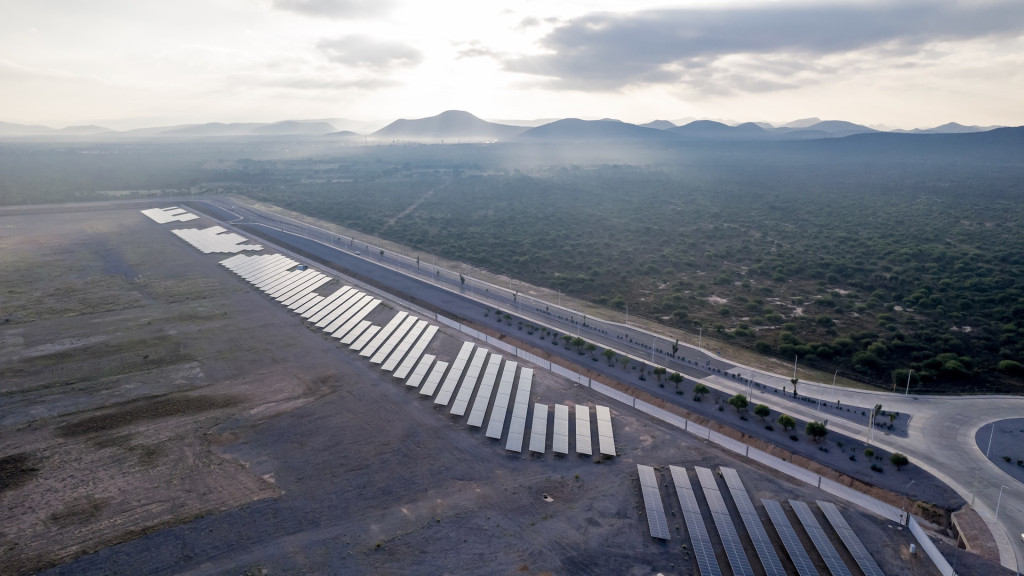Former President Donald Trump has announced that he would apply a tariff of 100% to cars built in Mexico by Chinese companies for U.S.-market sale—effectively double the previous tariffs he had seeked to apply.
In a Saturday campaign speech in Dayton, Ohio, Trump said that over a period of 30 years Mexico has taken away 34% of the automobile manufacturing business in the U.S.
“China now is building a couple of massive plants where they’re going to build the cars in Mexico and they think that they’re going to sell those cars into the United States with no tax at the border,” he said.
Trump then announced, in what appeared to be directed directly to China President Xi Jinping—and a detail reported by Bloomberg—that he intended to put a 100% tariff on all such cars if he gets elected.
Currently cars imported from China are subject to a 25% tariff, while those from Mexico, made with Chinese parts, would only be subject to a 2.5% tariff.
2023 Buick Envista (China spec)
“They won’t sell any cars over here,” said Trump, picking up the conversation a short time later. “And I’ll tell them if they want to build a plant in Michigan, in Ohio, in South Carolina, they can, using American workers, they can’t send Chinese workers over here which they sometimes do…but they’re not going to build them in Mexico.”
What Trump proposes isn’t entirely new and comes after multiple factions of Senate, Democrat and Republican, urging higher tariffs on Chinese vehicles and quicker action, as the Biden administration studies the possibility. Earlier this month three Senate Democrats from car-manufacturing states warned of “artificially low-priced Chinese EVs flooding the U.S. market,” which would “endanger the survival of the U.S. automobile industry as a whole.” That came just days after Republican Josh Hawley proposed a bill that would effectively put a 125% tariff on imported Chinese vehicles and a 100% tariff on Mexico-made Chinese vehicles.

BMW Group Plant San Luis Potosí in Mexico
Mexico already builds many U.S.-bound EVs but buys few of them. Among them, GM and Ford already look to Mexico for EV assembly, and BMW recently last year announced plans to build its next-generation Neue Klasse EVs there.
Early in the administration Biden issued an executive order on the EV supply chain and battery production, and turned to the Defense Production Act to spur production of critical materials for EVs, sooner. That led to the Inflation Reduction Act, a multifaceted piece of legislation that, on the vehicle and manufacturing front, will double U.S. EV sales by 2030 vs. previous forecasts, according to analysts in October.

2024 Polestar 2 single motor
Tides have turned on Chinese vehicle imports versus five or six years ago, when it appeared to be an unstoppable trend that U.S. and German automakers were planning to turn to more Chinese-assembled vehicles in the near future—especially in light of China’s focus on EVs. The Polestar 2 is the only widely available China-made EV currently sold in the U.S. market; Polestar this past week appeared to also suggest that China-made Polestar 3 models will arrive before U.S.-made ones this year.
Trump did not actually make a distinction in the tariff announcement about whether the vehicles of concern were electric or not. But earlier in the speech he again appeared to criticize Biden’s push toward electric vehicles, alliances with the UAW, and EVs in general. “They want to do this all-electric nonsense where the cars don’t go far, they cost too much, and they’re all made in China,” he said.
The Chinese automaker BYD hasn’t yet confirmed a Mexico plant, but it’s scouting locations. BYD has said that it doesn’t plan to sell EVs in the U.S.

BYD Han
According to a recent report in Autoweek, BYD already offers four models in Mexico—the Han, the Tang, the Yuan Plus, and the Dolphin Mini. The Dophin Mini starts at about $21,000 in 190-mile form or $23,000 with 252 miles of range.
Read the full article here


